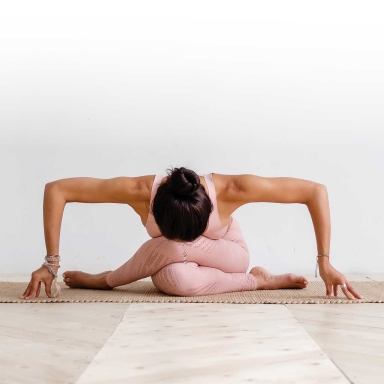Our Office Hours Have Changed
Learn moreLife and living: 9 mindful benefits of yoga

In today’s fast-paced world, where distractions are prevalent and the daily grind never seems to end, it can be hard to find tranquility within the trenches of your mind. That’s where the ancient practice of yoga comes in. By weaving together physical postures, controlled breathing and meditation, yoga offers a sanctuary for both mind and body.
Whether you’re a seasoned yogi or new to the mat, it’s essential to understand the mental health benefits yoga can provide: calming the mind, elevating your spirit and protecting your body against life’s stresses. Let’s explore the ways yoga is good for your mental health and a few simple poses to get you started.
1. Reduces stress
Yoga is a great way to manage stress by focusing on mindfulness, meditation and physical movement. By incorporating deep breathing and relaxation techniques, yoga can effectively reduce cortisol, which is the hormone responsible for stress.
2. Relieves anxiety
Regularly practicing yoga can help decrease the symptoms of anxiety. By paying attention to your posture and controlling your breathing, you’re able to stay in the present moment and let go of worries about the future.
3. Improves mood
Yoga has the power to boost the production of feel-good neurotransmitters like serotonin and endorphins. This can uplift your spirits and bring about a sense of happiness.
4. Enhances self-awareness
Yoga encourages self-reflection and awareness through mindful practice. This allows you to gain a clearer understanding of your thoughts and emotions.
5. Boosts concentration
The meditation aspect of yoga can help improve concentration and cognitive function. This leads to better focus and mental clarity.
6. Improves sleep quality
Yoga can lead to better sleep by helping to relax the mind and body, which makes it easier to fall asleep and stay asleep longer.
7. Promotes emotional healing
The calming and introspective nature of yoga can help in emotional healing by assisting you in dealing with—and letting go of—negative emotions and past traumas.
8. Strengthens self-esteem
Practicing yoga regularly can lead to a stronger, more flexible body. It can also assist you in approaching your self-image and overall health with a mindful sense of compassion.
9. Increases resilience
By enabling you to manage stress and improve emotional regulation, yoga helps you better cope with daily pressures and life’s challenges.
3 beginner-friendly yoga poses*
Mountain pose
How to do it:
Stand straight with your feet facing forward parallel to each other.
Place your arms at your sides, palms facing forward.
Balance your head over your hips and look straight ahead.
Engage your muscles without locking your knees.
Hold this pose for 5-10 breaths.
Benefits: Improves posture, balance and calm focus.
Downward-facing dog
How to do it:
Begin on your hands and knees, keeping your wrists under your shoulders and your knees under your hips.
Exhale as you tuck your toes and lift your knees off the floor, straightening your legs without locking your knees.
Aim to lengthen your spine while bringing your ears in line with your upper arms.
Hold this pose for 1-3 minutes, breathing deeply.
Benefits: Stretches the shoulders, hamstrings, calves and hands, while strengthening the arms and legs.
Warrior II
How to do it:
Start in mountain pose, but move your feet four to five feet apart.
Raise your arms parallel to the floor and reach them out to the sides with your palms down.
Turn your right foot slightly to the right and your left foot out 90 degrees.
Align the left and right heels; exhale and bend your left knee over the left ankle, keeping your torso even between the legs.
Stay in this pose for 30 seconds to one minute, then switch sides.
Benefits: Increases stamina, improves balance and concentration, and stretches the legs, groin and chest.
Namaste.
*Check out bit.ly/10beginneryoga for additional videos and more beginner-friendly poses.
Back to issue








